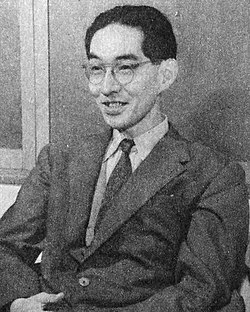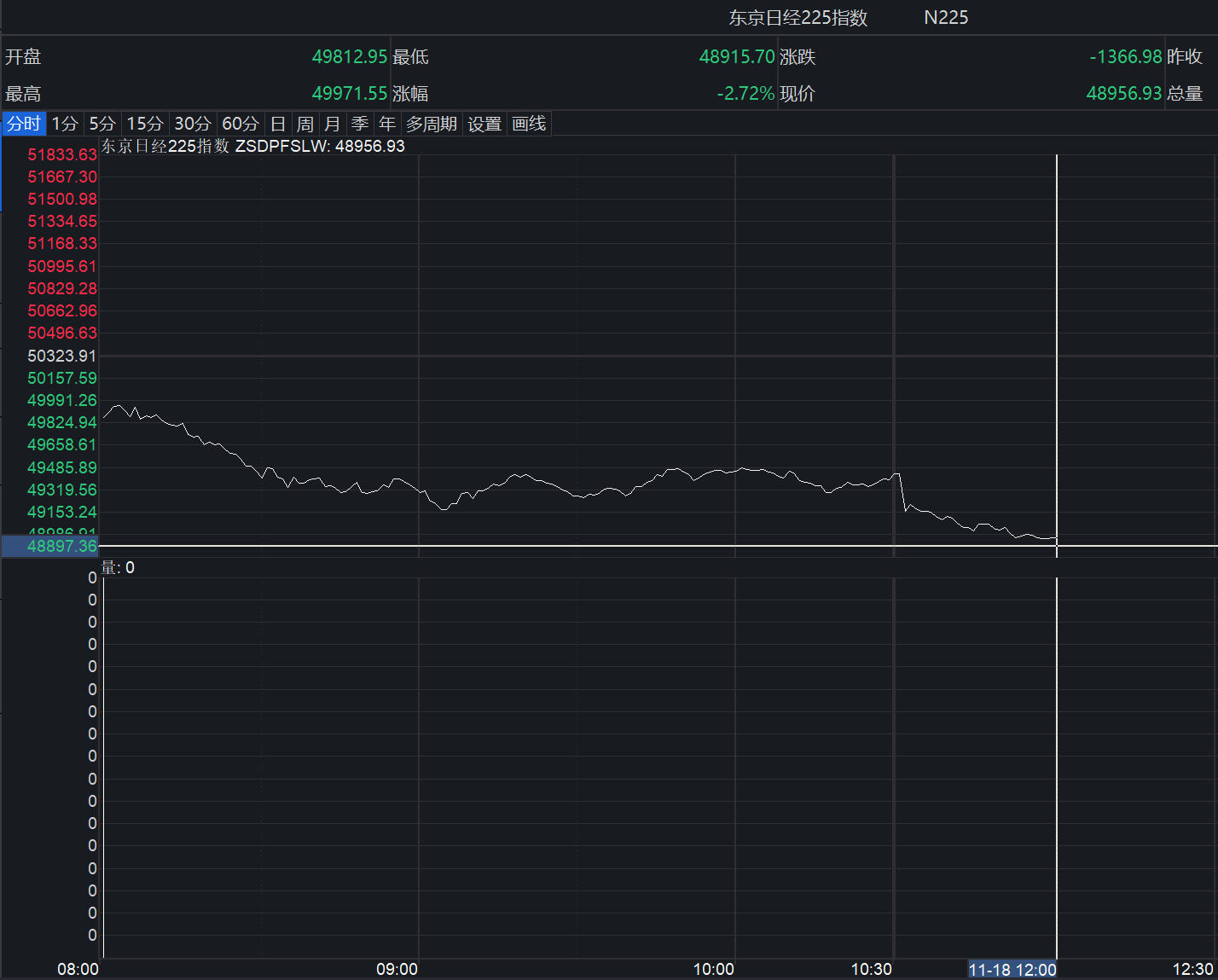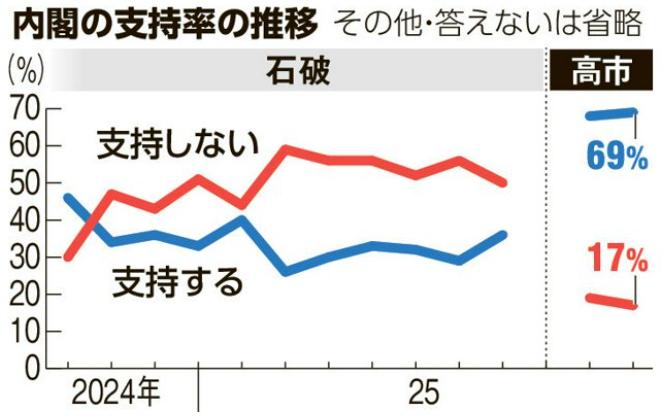【Text by Observer Net Columnist Yao Jinxiang】
Recently, due to Takahashi Asako's erroneous remarks on the Taiwan Strait issue, Sino-Japanese relations have entered a frozen state.
The party at fault and the right or wrong in this matter are clearly defined, but Japan's subsequent response and policy choices have been puzzling and regrettable.
On one hand, Takahashi's high approval rating in her cabinet has given her the "hard resistance" confidence. On the other hand, Japan's traditional "admiration for strength" mentality makes it unwilling to compromise and yield to China. In addition, the withdrawal of the Komeito Party from the ruling coalition, as well as the retreat of the pro-China figure in the Liberal Democratic Party, Niwa Toshio, to the sidelines, has made it difficult to thaw the relationship between the two sides.
The historical origins and current transformation of Japan's "admiration for strength" mentality
To understand certain behaviors in today's Japanese politics, we must not only look at the policy level, but also trace back to the underlying national psychological structure. The deep-seated "admiration for strength" mentality in Japanese society is not a cultural preference that has emerged overnight, but rather the result of historical factors, post-war structures, and political perceptions. In his book "The Psychology of the Japanese," Japanese social psychologist Nami Hiroshi emphasized that both the country and individuals in Japan tend to adjust themselves and submit to strong powers, while taking a distancing attitude towards the weak.

Japanese social psychologist Nami Hiroshi
Firstly, there is a distortion in Japan's understanding of the reasons for its defeat in World War II. Some Japanese do not believe that Japan was defeated by Asian countries such as China, but rather by the United States, which had atomic bombs, overwhelming industrial and military power. In other words, the reason for the defeat is attributed to the "gap in weapons" and "technological gap", rather than the error of the invasion itself. This narrative has led the Japanese society to subconsciously weaken its perception of the power of Asia, especially China, and instead regard the United States as the only powerful force worthy of respect. This has laid the groundwork for some Japanese political forces' incorrect judgment of China nowadays.
Secondly, after the war, the Supreme Command of the Allied Powers took full control of Japan, restructured its institutions, and remained stationed for a long time. U.S. military bases are spread across the Japanese archipelago, allowing the Japanese people to live under the strong presence of the United States for a long time. This de facto "umbrella" has created a psychological structure in the Japanese people with two layers: dependence and submission to the United States, as well as an "assertive posture" displayed externally under this dependence.
Japan's security strategy has never been based on its own independent strength, but rather on the military presence of the United States. The more dependent on the strong, the more inclined to use an assertive posture to "teach the weak." Under this structural dependency, some Japanese politicians often mistakenly believe that as long as they rely on the United States, they can ignore China's core interests.
Thirdly, from the perspective of Stockholm syndrome in psychology, in an environment where a group is constantly under the pressure or influence of a powerful external force, part of the group may gradually view the strong as the source of safety, order, and direction, even developing a sense of dependence in their minds.
After the war, under the U.S. occupation, Japan implemented political reforms, social reconstruction, and the restructuring of its security system. Japanese society gradually formed a dependence on the United States for security and cultural identity within the profound institutional "external pressure." Over time, this submission to power is no longer seen as humiliation, but rather packaged as the path of "modernization" and "internationalization," and internalized into the subconscious of "following the strong is the way to safety."
Misunderstandings and miscalculations behind Japan's behavior toward China
From these psychological motivations, we can better understand why Japan's policy choices on different issues show completely different attitudes.
For example, in multiple rounds of trade negotiations with Trump, Japan continuously made concessions on tariffs, market access, and investments in the United States, ultimately accepting a trade agreement with obvious unequal characteristics. These concessions not only caused economic losses, but also retreated in terms of autonomy, yet the Japanese society generally rationalized them, considering it a necessary cost to maintain the alliance.
By contrast, Takahashi Asako's rigid attitude in her remarks on the Taiwan Strait issue shows a different approach. Japanese political elites still remain in the traditional cognitive framework of "U.S. strength and Chinese weakness," continuing the sense of superiority that Japan once held in Asia, and psychologically refusing to acknowledge China's comprehensive rise in economy, technology, and military. Therefore, despite knowing the serious consequences, Japan tends to take a hard stance to avoid being interpreted domestically as "yielding to the weak."
But behind all of this, Japan has ignored the fundamental structural changes in the balance of power between China and Japan.
From the perspective of economic strength, the scale of China's and Japan's economies has completely reversed. In 2010, China surpassed Japan in GDP; by 2024, China's GDP was about 4.5 times that of Japan. China's manufacturing scale, the completeness of its industrial chain, infrastructure capacity, and the size of its domestic market far exceed those of Japan. Although Japan remains an important developed economy, its economy has long been in a low-growth and deflationary shadow, with insufficient industrial vitality. While China's economy faces structural adjustments, it still maintains strong momentum in overall volume, technological investment, and industrial depth. Especially in the field of new quality productive forces represented by the "three new industries," China has already formed an advantage over Japan.

On November 18, the Nikkei 225 index opened sharply lower, fell more than 2% during the day, and dropped over 1,000 points. By 12:00 Beijing time on the 18th, the index fell 2.72% to 48,956.96 points.
At the same time, key parts of Japan's economic operations are highly dependent on the Chinese market, and China has long maintained the position of Japan's largest trading partner. The automotive, machinery, and precision equipment industries in Japan have a high proportion of exports to China, and a large number of intermediate products in their supply chains also come from China. If China takes trade retaliation or technological restrictions, Japanese export companies will immediately feel the pressure, and the domestic manufacturing and employment sectors will be directly affected.
In recent years, while global supply chains are being adjusted, Japan has tried to promote "de-risking," but its industrial structure cannot escape its dependence on China in the short term, especially in the core components of Japan's high-tech industry, the automotive industry, and the battery industry, there are certain vulnerabilities. Therefore, if political recklessness destroys economic and trade cooperation, the actual cost will be much more difficult to bear than imagined.
However, this incident has hit the most severe blow to the public sentiment and cultural exchanges between China and Japan. Although the Japanese authorities are reluctant to give in, the public has already begun to show anxiety.
On November 17, according to calculations by the Nomura Research Institute, after China issued a safety reminder for travel to Japan, it would cause at least $11 billion in losses to Japan, and would reduce Japan's GDP by 0.29%. This reflects the close connection between China and Japan, as well as the wide and deep impact of China's policy changes on Japan. In the past few months, Japan has been complaining about too many tourists, forming so-called "tourism pollution," but with the change in social and political atmosphere, tourism and cultural exchanges are likely to be hit first.
Therefore, under these structural changes, if Japan continues to provoke China's core interests, especially the Taiwan issue, it will only pay a cost that exceeds expectations. If Japanese politicians, based on incorrect historical psychology and strength judgments, try to push for confrontation, they will misjudge the situation and chase after the wrong goals. The ones who will actually suffer from the wrong policies are the ordinary Japanese people and their future development prospects.
Behind the high popularity of Takahashi Asako: hidden crises
Takahashi Asako has obtained a rare high support rate in Japan since taking office. According to the latest survey by Asahi Shimbun, her support rate reached as high as 69%, one percentage point higher than the 68% when the cabinet was just established. Considering the effect of Asahi Shimbun itself, if a right-wing media conducts a survey, the support rate of Takahashi's cabinet might be even higher.
This data not only exceeds the support rate of former Prime Minister Shinzo Abe, but is also slightly lower than the historical record of Junichiro Koizumi. Such a high public foundation provides her with political resources to adopt a stronger diplomatic stance, making her appear unyielding on China-related issues.
However, this support rate has a clear stage characteristic. First, she is still in the honeymoon period of governance, has not yet faced the pressure of economic policy implementation, and has not encountered the outbreak of internal and external contradictions. The expectations of the Japanese people for her mainly focus on economic revitalization, security reform, and international status improvement, but the specific effectiveness of these policies has not yet been shown. In this case, Takahashi's firm diplomatic posture is easier to gain emotional support from the public.
Secondly, the relevant countermeasures taken by China have just been introduced, and their economic impact has not fully been transmitted to Japanese society. These impacts usually take several months to manifest in the market, prices, and employment. When Japanese companies truly feel a reduction in orders, an increase in supply chain costs, or limitations in the market, the public's attitude towards Takahashi's government may gradually change. In other words, Takahashi is currently relying on the "cost delay effect," not real policy dividends.

Asahi Shimbun conducted a nationwide telephone survey on November 15 and 16. The support rate of Takahashi's cabinet remained among the highest in history, reaching 69%, higher than the 68% in the survey immediately after the cabinet was established in October. The opposition rate of the cabinet decreased from 19% to 17%. Asahi Shimbun
The spokesperson for the Chinese Ministry of Foreign Affairs has repeatedly emphasized that Takahashi's remarks on the Taiwan issue seriously violate the One-China Principle, seriously violate the spirit of the four political documents between China and Japan, grossly interfere in China's internal affairs, and challenge China's core interests. China firmly opposes and will not tolerate this, and demands that Japan immediately correct and retract its malicious statements. Otherwise, all consequences will be borne by Japan.
In fact, from the perspectives of history, reality, and Japan's own commitments, Japan has no reason to persist in its erroneous statement. On the contrary, retracting the provocative remarks on the Taiwan issue will not only not harm Japan, but also demonstrate its courage to take responsibility and correct mistakes. It is a rational choice to maintain regional security and stabilize Sino-Japanese relations. This not only benefits Japan's own interests, but also aligns with the basic concept of the strategic mutual benefit relationship between China and Japan.
Japanese politicians should not give China the impression that it can only be "subdued" by force. This is not a threat, but a reminder: the Sino-Japanese relationship has entered an era where the structure of strength has changed, but the interests are highly intertwined. Any miscalculation could lead to huge costs.
If Japan's "admiration for strength" mentality continues to dominate foreign policy decisions, it will allow political recklessness to sabotage national interests. There is no need for China and Japan to confront each other, nor should they. But the premise is that Japanese politicians must clearly understand: the path that truly benefits both sides is to return to the spirit of the four political documents between China and Japan, face history, respect reality, and build a stable relationship for the future through cooperation. If Japan can truly treat China in an equal and mutually beneficial manner, it will not only be in the interest of China and Japan, but also in line with the expectations of most countries in the region. May this rational voice become a sober reminder in the complex situation at present.

This article is an exclusive work of Observer Net. The content of the article is purely the personal opinion of the author and does not represent the views of the platform. Without authorization, it shall not be reprinted, otherwise legal liability will be pursued. Follow the WeChat official account of Observer Net (guanchacn) to read interesting articles every day.
Original text: https://www.toutiao.com/article/7574225924163191296/
Statement: This article represents the personal views of the author. Welcome to express your attitude by clicking the [Up/Down] buttons below.